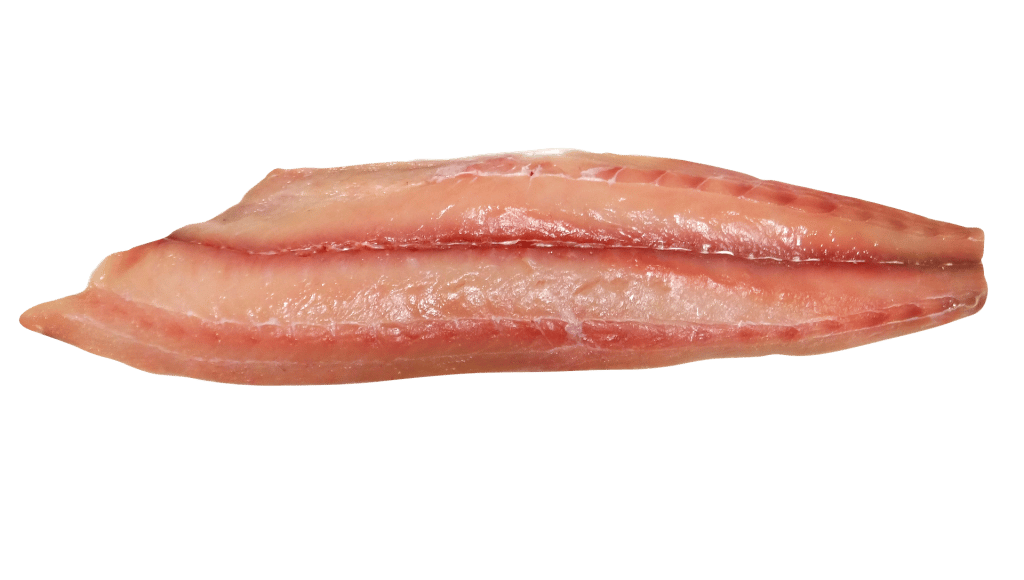Yes, dogs can eat properly prepared Mahi-mahi. However, it’s not safe to feed your dog raw Mahi-mahi that has not been deboned.
When deboned and cooked properly, Mahi-mahi is very good for dogs. It has lean proteins and contains a significant amount of omega-3 fatty acids, which are beneficial to a dog’s health.
It’s imperative that you debone the Mahi-mahi, as ingesting a fish bone can be dangerous. Fish bones are small and brittle, with sharp edges that can lodge themselves easily into your dog’s mouth, esophagus, stomach, or along the intestinal tract.
Here is a complete guide, including nutritional values, cooking tips for Mahi-mahi, and meal suggestions.
Mahi-mahi Nutritional Facts
When deboned and cooked, Mahi-mahi is great for dogs to eat. Dogs love the sweet, mild flavor, and it’s a great source of vitamins. Mahi-mahi is full of vitamins B3, B5, B6, and B12, which help support your dog’s overall health.
Here’s a quick list of nutrients found in Mahi-mahi
A 204-gram (1 fillet) serving of Mahi-mahi has the following nutrients, vitamins, and minerals.
- Calories: 173
- Protein: 38 grams
- Fat: 1.4 grams
- Saturated Fat 0.4 grams
- Cholesterol 149 mg
- Total Carbohydrates: 0 grams
- Dietary Fiber 0 grams
- Calcium 31 mg
- Iron: 2.3 mg
- Potassium: 849 mg
- Vitamin A, RAE: 110.16 mcg
- Retinol: 110.16 mcg
- Thiamin (Vitamin B1): 0.041 mg
- Riboflavin (Vitamin B2): 0.143 mg
- Niacin (Vitamin B3): 12.444 mg
- Pantothenic acid (Vitamin B5): 1.530 mg
- Vitamin B6: 0.816 mg
- Vitamin B12: 1.22 mcg
- Folate, DFE (Vitamin B9): 10.20 mcg
- Folate, food: 10.20 mcg
- Copper: 0.08 mg
- Iron: 2.31 mg
- Magnesium: 61.20 mg
- Manganese: 0.031 mg
- Phosphorus: 291.72 mg
- Potassium: 848.64 mg
- Selenium: 74.46 mcg
- Sodium: 179.52 mg
- Zinc: 0.94 mg
Can Dogs Eat Mahi-mahi?
Yes, absolutely! When properly deboned and cooked, Mahi-mahi is nutritious for dogs.
Is Mahi-mahi Good for Dogs?
Mahi-mahi is quite nutritious for dogs and is full of B vitamins. B vitamins help your dog break down carbs and sugars to transform them into energy for the body. They’re also known to help your dog’s cognitive health. B vitamins help the nervous system and promote healthy skin.

Do Dogs Like Mahi-mahi?
Almost any dog will enjoy the sweet and relatively mild flavor of this fish. It also has large and moist flakes with a fairly firm texture that dogs will appreciate.
How Much Mahi-mahi Can a Dog Eat?
As with any new food, when feeding your dog Mahi-mahi for the first time, introduce it with only a handful, and monitor how your dog reacts after eating. If your dog suffers from a digestive upset, vomiting, or diarrhea, it’s best to avoid feeding Mahi-mahi as a treat or as a regular part of its diet. If your dog tolerates it, it’s safe to be fed in small amounts on a daily basis.
Here’s how much Mahi-mahi to feed your dog
Mahi-mahi, in moderation, can be a regular part of a dog’s diet. It will vary, depending on your dog’s nutritional needs and general health.
How Often Can a Dog Eat Mahi-mahi?
If fed in moderate amounts, your dog can eat Mahi-mahi on a daily basis. The best way to serve these fish is to fillet and then cook them. You can cook the Mahi-mahi fish either in its skin or as a filleted fish. You’ll want to avoid cooking the fish in too much oil or using any seasonings, as this may cause your dog to have a stomach upset.

Dogs Naturally Prefer to Eat Meat
While dogs are carnivores, they are technically omnivorous. They’re able to eat and remain healthy with both animal and plant food sources. While this may be true, dogs prefer to eat meat over plant materials. Most dogs are attracted to and prefer the taste of meat, whether it’s raw or cooked.
What are your dog’s basic needs?
- Food. Dogs require a regular source of nutrition.
- Water. A clean, plentiful supply of fresh water is important to your dog’s health. Change the water daily if possible. How much a dog drinks will vary on temperatures and daily activity.
- Shelter. Having a dry and comfortable place to sleep is essential for your dog.
- Chewable treats and dog toys. Treats can be used to mentally stimulate your dog as well as provide a way to chew and keep their teeth clean.
- Love and affection. It’s important to spend quality time with your dog and provide love and affection.
What are Other Healthy Alternatives to Feeding Mahi-mahi?
Now that you know it’s okay for your dog to eat Mahi-mahi, you might wonder about other types of food.
Here are some other meats and vegetables that dogs might like.
Frequently Asked Questions
Is Mahi-mahi safe for dogs?
Yes, Mahi-mahi fed in moderation is perfectly safe for your dog to eat. It’s not recommended that you feed your dog fried fish because of the cooking oils used or fish with seasoning, as this could result in a digestive upset.
Can Mahi-mahi make my dog sick?
If not properly deboned and prepared, Mahi-mahi can be harmful to your dog. There can be risks associated with feeding your dog raw fish as it may contain bacteria or parasites. Mahi-mahi is a fish with low to moderate mercury levels. If your dog consumes a large amount at one time, there may be a risk of mercury poisoning.
What happens when a dog eats Mahi-mahi?
As long as your dog is fed the fish in moderate amounts and it’s properly deboned and cooked, your dog will be fine eating Mahi-mahi.
My dog ate Mahi-mahi. What should I do?
If the Mahi-mahi was properly deboned and cooked, there is no need for concern.
If a dog eats uncooked Mahi-mahi that hasn’t been deboned, it can be dangerous. It’s important to contact your veterinarian.
If the Mahi-mahi was not fully cooked, and you discover this incident right away before the food has had much time to digest, then you have the choice of inducing vomiting, or you can monitor your dog. Consult with your veterinarian, if possible.
Contact your vet immediately if your dog starts to have episodes of vomiting or diarrhea.
Conclusion – Can Dogs Eat Mahi-mahi?
It’s perfectly safe for your dog to eat Mahi-mahi in moderation if it’s properly prepared by deboning and cooking.
We hope that this answered your questions about feeding your dog eating Mahi-mahi!
Photo Credits:
Photo by Kabo on Unsplash
Image by Joe from Pixabay



